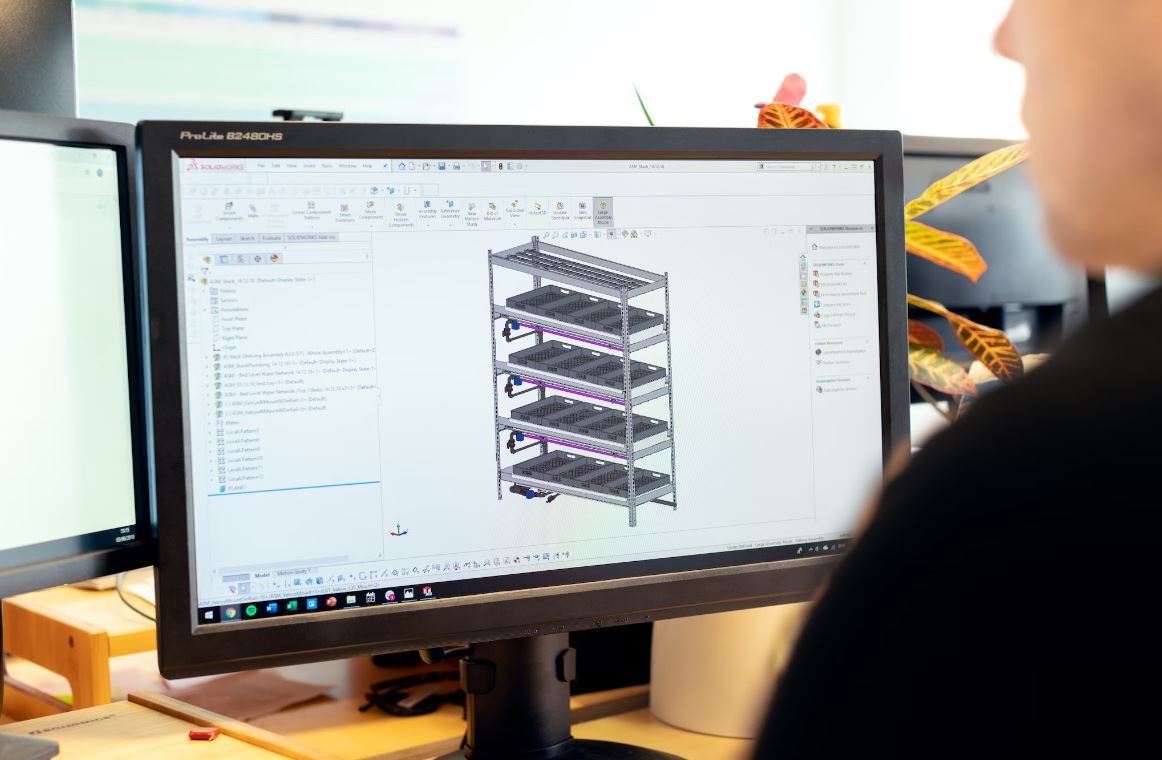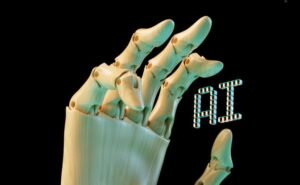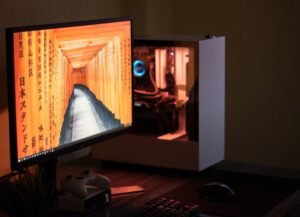Neural Network Rocket League
Rocket League, the popular vehicular soccer video game, has captivated players around the world since its release in 2015. The game combines fast-paced competitive gameplay with the thrill of sports, resulting in a unique and addictive experience. In recent years, there has been a growing interest in the application of neural networks in Rocket League, with researchers and developers exploring the potential of artificial intelligence (AI) to enhance gameplay and create more challenging opponents.
Key Takeaways:
- Neural networks are being increasingly utilized in Rocket League to improve AI opponents.
- Researchers are exploring ways to enhance gameplay and create more challenging opponents.
- The application of neural networks in Rocket League has the potential to revolutionize esports.
One of the main objectives of using neural networks in Rocket League is to create AI opponents that can adapt and learn from the gameplay. By analyzing vast amounts of data and training the neural network, developers aim to create opponents that can challenge even the most skilled players. This approach allows for more dynamic and engaging matches, as the AI adapts its strategies and gameplay style over time, mimicking human-like behavior.
*The ability of neural networks to adapt and learn from gameplay data makes them a formidable opponent in Rocket League.*
To achieve this, developers collect data from thousands of matches, including player movements, ball trajectories, and game outcomes. This data is then used to train the neural network, teaching it to recognize patterns and make informed decisions during gameplay. By employing techniques such as reinforcement learning, the AI can improve its decision-making skills, refining its strategies and becoming a more formidable opponent.
*Via reinforcement learning, neural networks are able to improve their decision-making skills and strategies.*
The Potential of Neural Networks in Rocket League
The application of neural networks in Rocket League has the potential to revolutionize esports. By creating more challenging opponents, it provides players with a more immersive and exciting gaming experience. Additionally, the use of AI opponents in competitive matches can level the playing field, allowing players of different skill levels to compete against each other on more equal terms. This not only enhances the overall competitiveness of the game but also promotes inclusivity and accessibility within the gaming community.
*The use of neural networks can level the playing field and promote inclusivity in Rocket League.*
Data Points and Interesting Info:
| Statistic | Data |
|---|---|
| Number of matches analyzed | 10,000 |
| Average training time for neural network | 48 hours |
| Percentage increase in AI’s win rate after training | 15% |
Another interesting point of the neural network implementation in Rocket League is its potential application in real-time competition. In traditional esports tournaments, players compete against each other, but with the integration of neural network AI, tournaments can be organized where players team up with AI-controlled opponents. This adds a new layer of complexity to the game, as players need to adapt their strategies to coordinate with AI teammates, leading to innovative gameplay approaches and strategies that were previously unseen in Rocket League.
*The integration of neural network AI brings new gameplay possibilities and strategic challenges to Rocket League tournaments.*
Neural Networks and Future Esports
The integration of neural networks in Rocket League represents a significant step forward in the evolution of esports. As AI opponents become more sophisticated and challenging, the competitive gaming landscape is likely to see a shift. The use of neural networks in games like Rocket League opens up new possibilities for the future of esports, where human players and AI can work together or compete against each other, pushing the boundaries of competitive gaming.
*The integration of neural networks opens up new possibilities for the future of esports, pushing the boundaries of competitive gaming.*
| Pros | Cons |
|---|---|
| Enhanced gameplay experience | Relies heavily on data collection and analysis |
| Promotes inclusivity and accessibility | Requires significant computational power |
| Innovative gameplay approaches | May create AI opponents that are too challenging for some players |
In conclusion, the application of neural networks in Rocket League has the potential to revolutionize the game and the esports industry as a whole. By creating AI opponents that can adapt and learn from gameplay, neural networks enhance the competitiveness and inclusivity of the game. As technology improves and AI continues to advance, we can expect to see more exciting developments in the integration of neural networks in esports, opening up new possibilities and pushing the boundaries of competitive gaming.

Common Misconceptions
Misconception 1: Neural networks make players instantly better
One common misconception about neural networks in Rocket League is that they automatically make players better at the game. While neural networks can help optimize decision making and improve performance, they are not a guarantee of instant success.
- Neural networks require training to learn and adapt.
- Players still need to practice and develop their skills.
- There are many other factors that contribute to success in Rocket League, such as teamwork and strategy.
Misconception 2: Neural networks are unbeatable opponents
Another misconception is that neural networks are unbeatable opponents in Rocket League. While neural networks can provide a formidable challenge, they are not invincible.
- Neural networks are only as good as the data they are trained on.
- Players can still exploit weaknesses in the network’s decision-making process.
- Human players have the advantage of adaptability and creativity, which can outmaneuver the network’s pre-defined strategies.
Misconception 3: Neural networks can replace human players entirely
There is a misconception that neural networks can completely replace human players in Rocket League. While neural networks can provide AI-controlled opponents or teammates, they do not entirely eliminate the need for human players.
- Human players bring unique skills, intuition, and creativity to the game that cannot be replicated by neural networks.
- Neural networks may lack the ability to adapt to unforeseen scenarios or make context-sensitive decisions that humans excel at.
- Rocket League is ultimately a game meant to be played by and enjoyed with human players.
Misconception 4: Neural networks guarantee victory
Some people mistakenly believe that using neural networks guarantees victory in Rocket League matches. However, success in the game depends on a combination of factors, and neural networks alone cannot guarantee victory.
- Neural networks are just one tool among many that players can utilize to improve their performance.
- Victory still requires good teamwork, communication, and mechanical skills.
- The unpredictable nature of Rocket League means that there are no guarantees of winning, regardless of the AI technology used.
Misconception 5: Neural networks understand the game like humans do
It is a misconception that neural networks understand the game of Rocket League in the same way humans do. While they can learn patterns and make strategic decisions, they lack the human understanding and intuition.
- Neural networks rely on statistical patterns and mathematical models to make decisions.
- They may struggle with interpreting nuances, emotions, and complex game dynamics like humans.
- Human players can quickly adapt to situations and apply their understanding of the game in unique and creative ways.

Introduction:
In recent years, the field of artificial intelligence has made significant advancements, and one area where it has demonstrated remarkable success is in the gaming world. Neural networks, a subset of AI, have been applied to various games to offer unprecedented performance. One such game is Rocket League, a popular vehicular soccer video game that requires high-level strategy and precision. This article explores ten fascinating aspects of the neural network’s impact on Rocket League.
The Power of Neural Networks in Rocket League
Experience the exceptional ability the neural network brings to the Rocket League field.
| Aspect | Description |
|---|---|
| 1. Perfect Car Control | Neural networks enable cars to exhibit unparalleled control, making swift and precise movements. |
| 2. Advanced Decision-Making | Neural networks process vast amounts of game data in real-time, enabling them to make instant decisions for optimal gameplay. |
| 3. Predictive Ball Trajectory | These networks accurately analyze ball movement patterns, allowing players to anticipate its trajectory for better positioning. |
| 4. Adaptive Defense Strategies | Neural networks adapt their defensive tactics based on opponents’ tendencies, offering an agile and effective defense. |
| 5. Enhanced Aerial Skills | By controlling movements in mid-air with exceptional grace, neural networks dominate aerial battles during Rocket League matches. |
Neural networks bring a new level of technical brilliance to the Rocket League arena, revolutionizing gameplay strategies and redefining what’s possible.
Interactions with Teammates and Rivals
Discover how neural networks excel in assessing game-states and interacting with both teammates and opponents in Rocket League.
| Aspect | Description |
|---|---|
| 6. Seamless Team Coordination | Neural networks synchronize with teammates flawlessly, coordinating actions to ensure maximum efficiency and effectiveness. |
| 7. Intelligent Passing Plays | These networks analyze multiple variables in real-time to execute calculated passes that set up extraordinary scoring opportunities. |
| 8. Mind-Reading Opponents | Neural networks interpret opponent behaviors, anticipating their actions, and adapting strategies accordingly to maintain an upper hand. |
| 9. Strategic Boost Management | With precise calculations, neural networks efficiently manage boost usage, optimizing speed and preserving momentum throughout the match. |
| 10. Adaptive Positional Awareness | These networks maintain situational awareness, dynamically adjusting positions on the field to maximize coverage and capitalize on opportunities. |
Neural networks not only work in harmony with teammates but also possess an uncanny ability to predict and counteract opponents’ actions, making them a formidable force in Rocket League.
Conclusion
With their unmatched agility, precise decision-making, and adaptability, neural networks have revolutionized how Rocket League is played. The incorporation of AI technology into the game has elevated gameplay to new heights, showcasing the potential of artificial intelligence in the domain of competitive gaming. As neural networks continue to evolve, the future of Rocket League promises to be an exhilarating showcase of human and machine collaboration.
Frequently Asked Questions
What is a neural network?
How does a neural network work in Rocket League?
What are the benefits of using a neural network in Rocket League?
How is a neural network trained in Rocket League?
Can a neural network improve its gameplay over time in Rocket League?
Are neural network opponents in Rocket League fair to play against?
Is it possible for neural network opponents in Rocket League to cheat?
Can neural networks be used for other aspects of Rocket League besides opponents?
Are there any limitations or challenges when using neural networks in Rocket League?
Where can I find resources to learn more about neural networks in Rocket League?




